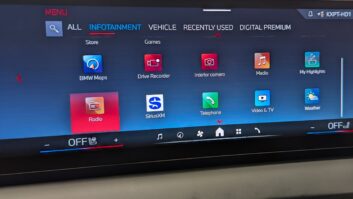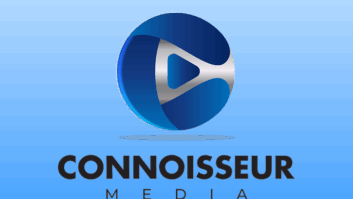SEATTLE Whatever the future holds, few dispute that the last decade has been one of unprecedented change for radio.
Examples of the industry’s rollercoaster of events litter its recent path: consolidation, the wildly fluctuating stock market and the promise and perils of new technologies like digital radio, satellite and the Portable People Meter measuring systems.
It is with these issues in mind that the radio community heads to this year’s NAB Radio Show, held in Seattle Sept. 12-14. Many will be searching for answers to tough questions about personnel, ratings, technology and, perhaps most significantly, how to strengthen the bottom line.
The show itself has shrunk. Attendance last year in New Orleans was down about 30 percent from the year before, with approximately 5,200 people attending, of which about 2,000 were fully paid, according to NAB at the time. The association expects a similar turnout this year.
The number of exhibits likely will be smaller, too; Radio World’s preview issue for last year’s show listed 148 pre-registered booths; this year’s list has approximately 105.
This convention originally was to have started on Sept. 11, but NAB officials changed the start date to avoid starting its event on the first anniversary of the terrorist attacks.
A tough year
The convention will offer broad choices of topics for managers.
To measure the health of a radio station, the market generally relies on two simple tests: ratings and revenues. But over the last several years, numbers in both of those categories have fallen, due to reasons as varied as increased competition and a fracturing of the radio-listening segment from other media.
Although the show will touch on a wide scope of issues including satellite radio, deregulation, low-power FM, payola and independent promotion, the fluctuating stock market undoubtedly will lead much of the dialog.
“The economy is the one issue that drives the rest of the discussions,” said Jimmy Steal, a member of the NAB Radio Show Steering Committee, which organized the conference and exhibition. “A general manager of mine once said, ‘If it’s not about ratings and revenue, I’m not interested.’ That pretty much lays out the hierarchy” of how things work in radio.
When one considers that radio basked in uninterrupted revenue growth through most of the 1990s until revenue pulled back in 2001, the thumps that the recent economy has handed out will be of primary focus.
Predicting the future
At least one panel will try to predict that future. “Seeing Your Future in the Crystal Ball of Insiders/Outsiders,” moderated by James Boyle, an analyst with Wachovia Securities who covers media stocks, will comprise “both industry insiders and Wall Streeters looking forward, perhaps with very conflicting views,” he said.
Similar views will come from Radio Advertising Bureau President Gary Fries in the session “The State of Radio Sales,” where Fries will offer the RAB’s perspective on the state of the industry and when recovery of media markets can be expected.
Attendees can get actual tips on how to revive falling revenues at another session, “Revenue Resuscitator: 60 Sales & Management in 60 Minutes,” where representatives of RAB will offer tips and tricks to improve a station’s bottom line. Likewise, Sam Donaldson will moderate a Super Session of radio group executives from various market sizes, each of whom will discuss the opportunities and challenges facing their market.
While some broadcasters are focused on terrestrial radio developments, others still have an eye on the promises of cyberspace. But are online radio streaming sites more of a programming asset or a liability in the way information is being presented?
Although heated debate goes on over issues such as copyright rules and limited advertising dollars, supporters still call online radio streaming “an opportunity to reinvent radio.”
“While the goal a year ago was simply to have one up and running, now the key is to monetize it, build databases and make the site work for a radio station,” Steal said. Those issues will be tackled in Internet-focused sessions, including “WWW: What’s With Our Web Site?” and “Radio Station Streaming: Is There A There, There? Sound Recording Royalties, Music Licensing Fees and Substitutions,” which will explore whether streaming of a radio station’s signal still makes sense.
Being the best
Other sessions at this year’s show focus on more grounded goals: getting your talent and programming to be better than it already is.
One such tactic will be at work during the “Morning Show Meeting” session, where show consultants and a program director will give the thumbs up or down to a working morning show.
“We want to help stations find out what is compelling about their program and what is not so compelling,” Steal said.
Unfortunately, sometimes the steps to improving a station’s programming come from miserable circumstances. Panelists at “411 on 9/11: What Listeners Want Now” will consider how the radio industry has changed since Sept. 11.
“Our goal is to roll up our sleeves and see how listeners’ expectations have changed post-9/11 and whether broadcasters have effectively adapted themselves to meet these new needs,” Steal said.
Other times, steps to improvement come from the other guys.
“When you look what’s happening with TV now, shows like ‘Spy TV,’ ‘Survivor’ and ‘American Idol,’ you’ll notice that those are all old radio bits,” Steal said. “I think TV has done a great job of taking pages out of the radio playbook, but I don’t know if we’ve done as good a job, especially in the promotions arena.”
This topic will be tackled in “Take it From the Tube: Lessons Learned From TV.”
Technology trials
Regardless of whether you are excited about this new technology or are anxious about some of the results, most consider Arbitron’s Portable People Meter an innovation that will have long-term ramifications for the industry. PPM technology will be the focus of the session “Look Ma, No Diary!”
“The PPM tests by Arbitron are one of the hottest topics in radio right now because it affects so many stations financially,” said one radio industry consultant, who spoke on the condition of anonymity.
Many PDs, the consultant said, have a “basic suspicion” about Arbitron that its diary numbers aren’t as accurate as they should be.
“And there are definitely questions about exactly how, when and where the new technology will be implemented and how the old books will be phased out.”
Another hot-button issue, in-band, on-channel digital audio broadcasting, will be the focus of several sessions and workshops, which Lynn Claudy, NAB senior vice president of science and technology, said has the potential to be “the greatest change in radio since the introduction of FM broadcasting.”
Panelists will explore the introduction of IBOC across several markets in “IBOC Rollout – Across The Industries,” moderated by Radio World Editor Paul McLane, and the all-day “Digital Radio Certification Workshop” will feature updates on IBOC, the ins and outs of IBOC implementation, updates on Ibiquity’s IBOC rollout and information on how to go digital at minimal cost.
While many tout the potential value of using IBOC wireless data in a mobile environment, others remain concerned about the cost of converting from analog to digital.
“There’s a real question about how you justify going digital when there aren’t yet any receivers yet in the market,” said one radio industry consultant.
The good and the bad
Seen by some as a blessing and others as a bust, consolidation is again up for debate.
At a session titled “With Consolidation, How Do We Grow the Revenue Pie?” panelists from radio groups and stations will discuss if the big group deals are truly bringing more money to radio. The issue also will be discussed in the session “You’re Consolidated: Pros and Cons,” which will delve into the good and the bad when it comes to consolidation.
This year’s NAB Radio Show keynote speaker is Bill O’Reilly, host of “The Radio Factor with Bill O’Reilly” and “The O’Reilly Factor.”
Other hot topics at the show include AM/FM antenna certification guidelines; opportunities for small-market stations; and news from the FCC, including the annual Policymakers’ Breakfast led by FCC Commissioners Kathleen Abernathy and Michael Copps. In addition, a panel of Washington insiders at the “NAB Congressional Radio Breakfast” will discuss possible further deregulation of radio ownership and the future of copyright laws.
Steal sees a promising future for the radio industry as it pauses for this event.
“Even though the market has gone through a rough time, I’ve found those are the times that genuine opportunities arise,” he said.
“The good thing about this convention is that you can get a vibe from people all over the country about how their station is doing, what the talent pool is like and who will be radio’s next big success.
“I’m not the most objective party, but radio is the most dynamic form of communication out there, and it will continue to succeed.”







